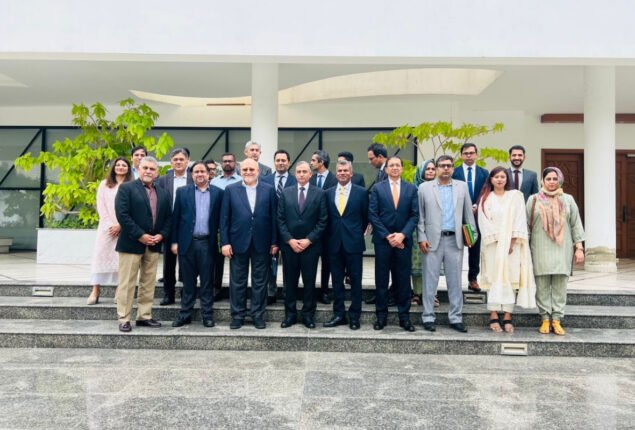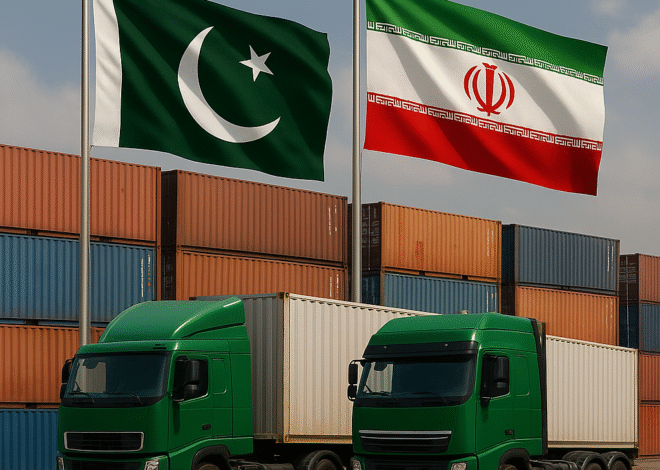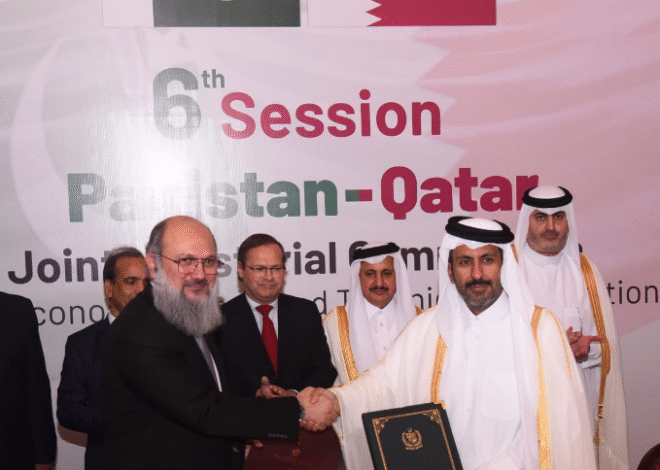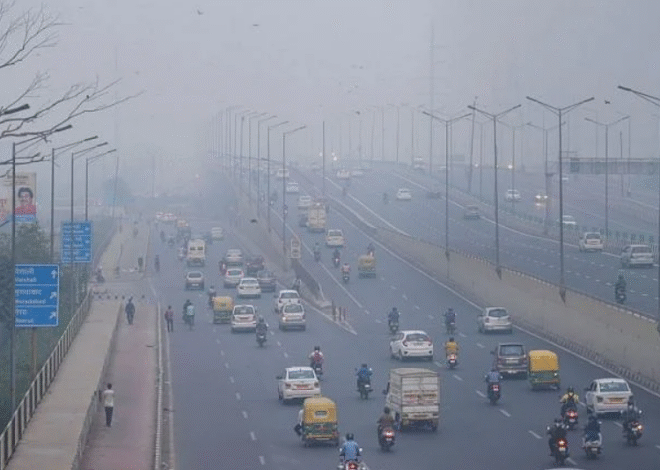
Roundtable on external imbalances of Pakistan held
As part of the Islamabad Policy Research Institute’s (IPRI) Grand National Dialogue on the state of the economy in Pakistan, a roundtable moot was held at the Karachi School of Business and Leadership on August 23, 2022, a statement said.
This was the third episode of the dialogue, meant to discuss the external imbalances of Pakistan’s economy, its gravity and its impact on the people. The topic was: “External Imbalances of Pakistan: Causes, Consequences and Remedies.”
With a distinguished panel of experts, it was threadbare deliberated as to how the rise in fuel prices and plunging exports, coupled with a remarkable drop in remittances, is leading the economy to a nosedive mode.
The scope of brain-storming was to identify the factors responsible for trade deficit in Pakistan; barriers on the path of soliciting foreign direct investment (FDI); and last but not the least, as to how to tackle with a soaring current accounts deficit.
An earnest effort was also made to look into the external imbalances on the economic growth, a battering rupee against the greenback and the ways to redress them.
The speakers were of the view that the external imbalance is a result of a range of issues, owing to high-level of dependence on imports and a plummeting exports sector.
It was pointed out that the reason for this slump is an inadequate export structure characterised by relatively low value-added commodities.
Likewise, swelling import bill has strained the government’s budget, as well as investors’ confidence in the economy, it was noted.
The discussants included Dr S Akbar Zaidi, executive director, IBA Karachi; Hussain Dawood, chairman of the Engro Corporation; Dr Aqdas Afzal, professor at Habib University, Karachi; Dr Safia Minhaj, professor at the University of Karachi; Dr Amir Hussain Saddique, research economist at AERC; Dr Aadil Nakhoda, professor at the IBA Karachi; Moin ud Din Khan, former economist at the State Bank of Pakistan (SBP); Afshan Uroos, deputy manager at the Trade Development Authority of Pakistan (TDAP); Salman Raza, deputy director at the TDAP; Dr Farooq Pasha, senior economist, MENAP Standard Chartered Bank and Dr Ahmad Junaid, associate professor, Cluster Head Finance and Accounting at KSBL.
Ambassador Dr Raza Muhammad of IPRI said that foreign direct investment can play a major role overcome the current account deficit.
“One reason behind the economic growth of Asian Tigers has been a greater influx of FDI,” he said, adding that the business-friendly environment should be harnessed to facilitate both domestic and foreign investments.
Dr S Akbar Zaidi observed that one of the solutions to Pakistan’s economic problems is to indulge in trade with India.
Hussain Dawood said that without focusing on human development, the economy can’t progress. “But unfortunately, we are the lowest on Human Development indicators in the region; and one of the biggest problems is disunity, as a result of which, we don’t have a direction,” he elucidated.
Aadil Nakhoda said that the biggest challenge we are facing is on the productivity side.
“Lower productivity affects our manufacturing sector and consequently exports. As a result, we end up being less competitive,” he added.
Nakhoda said: “We need to participate in the global supply chains. Rising East Asian economies are focusing on finished goods, while we are stuck with exports of raw goods. Our current policies favor large exporters by providing them handouts and subsidies. This doesn’t incentivize them to add value to the goods they are exporting. Thus, our exports majorly comprise low-valued goods,” he illustrated.
Afshan Uroos observed: “We have a limited basket of export goods. Our textile exports include only the raw material or summer clothes. Our textile export markets are the European markets. European countries have a winter season of around eight-month a year, but we don’t export winter clothes, despite having the capacity.”
Dr Aqdas Afzal said that the monetary policy has distributional consequences. “We should not be trying price controls. In the short-term, interest rate needs to go up. It will slow down economy and will help both in reducing the fiscal deficit and current account deficit, and at the same time pull in foreign exchange.” We need to move from imported energy resources to alternative sources of energy, he advised.
Dr Amir Hussain Saddique remarked that Pakistan needs to control dollarization, and added that entering into currency swap agreements, followed by their effective implementation, is one way to do it.
Dr. Aneel Salman, chair of economic security at IPRI, said that Pakistan lacks the right kind of mechanism to collect taxes and stressed on the need to evolve an energy security policy.


